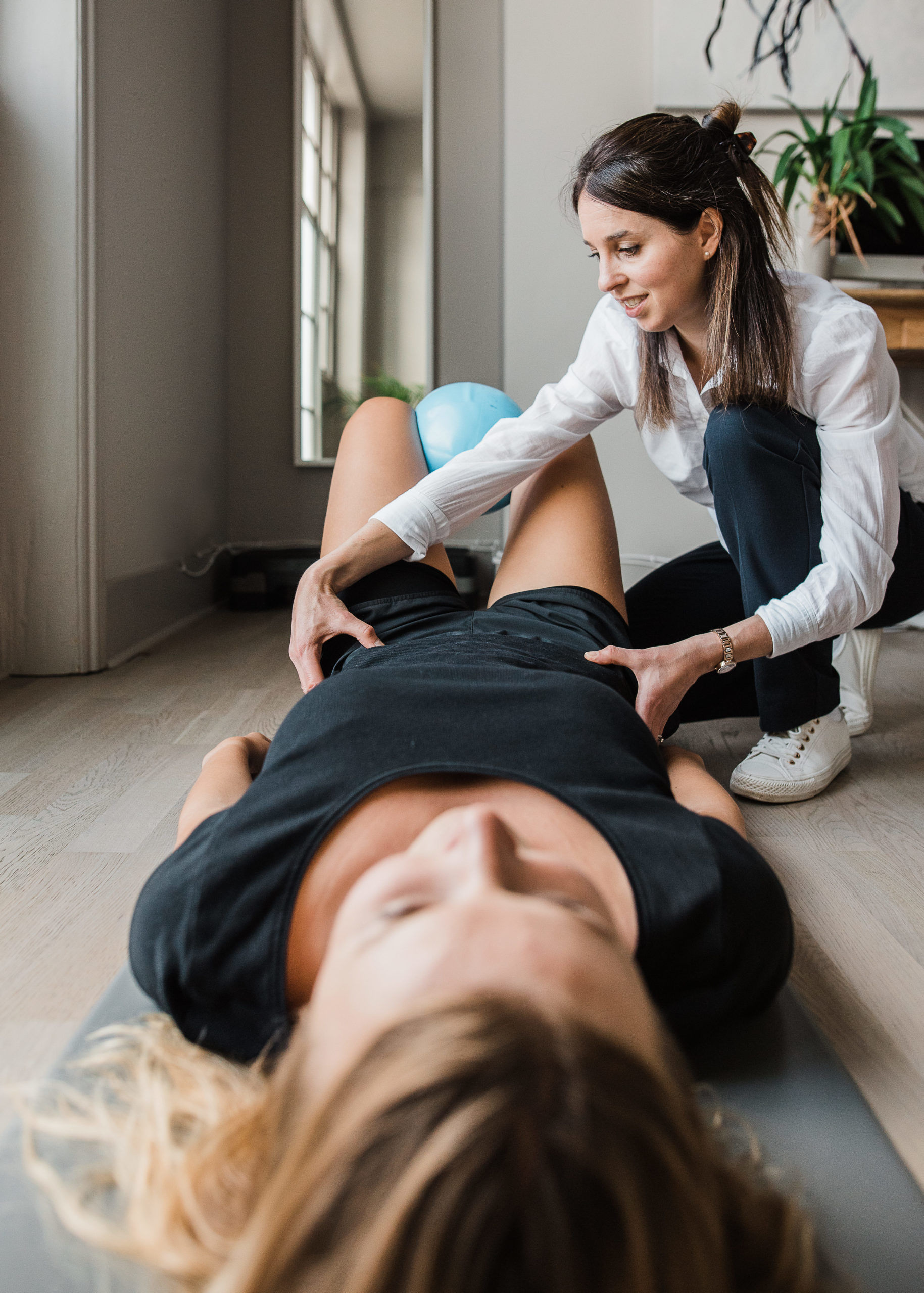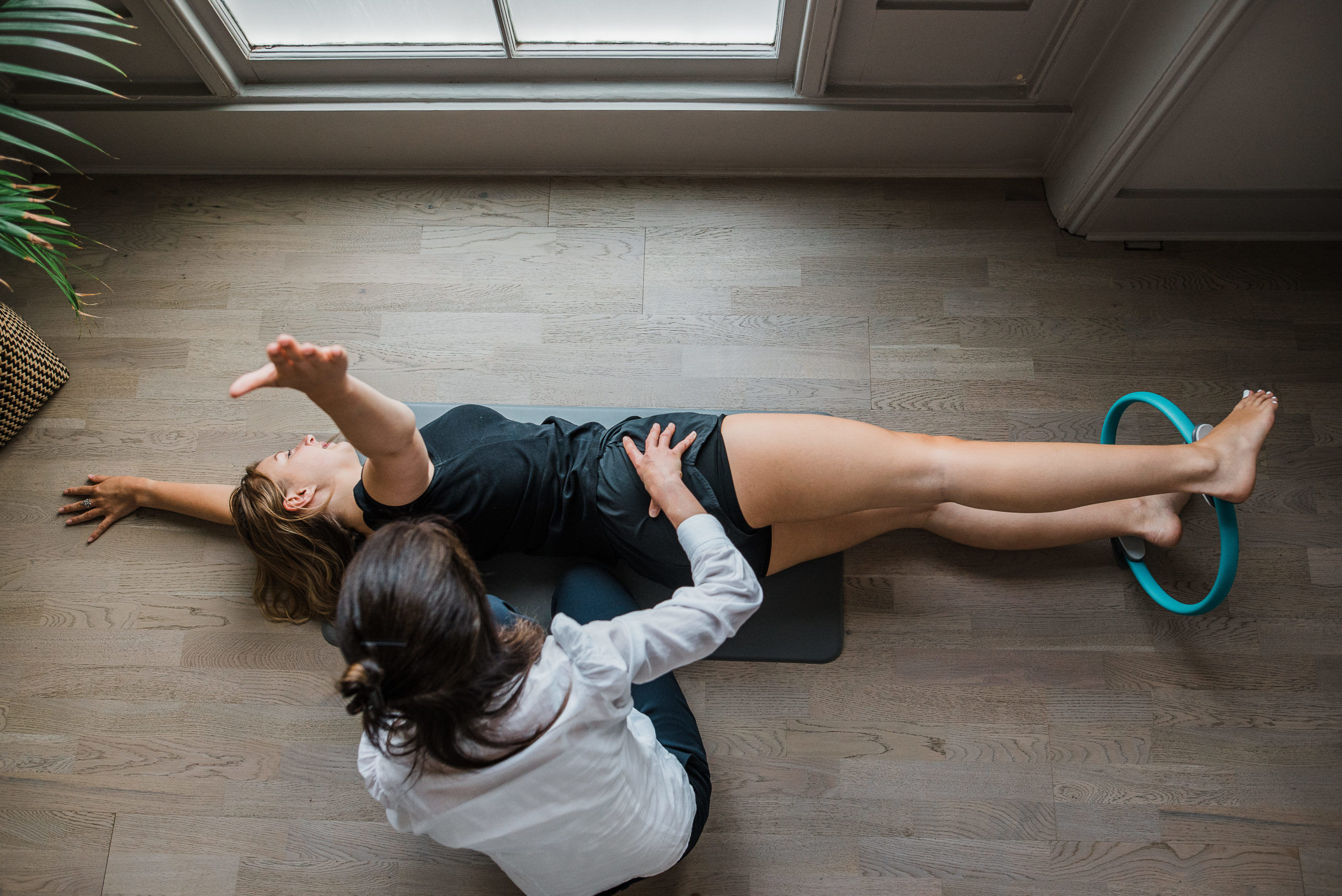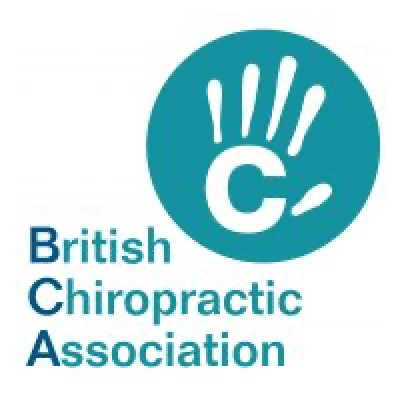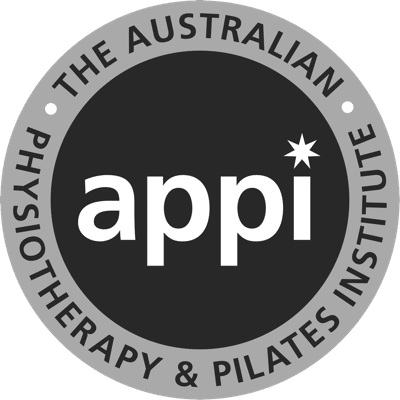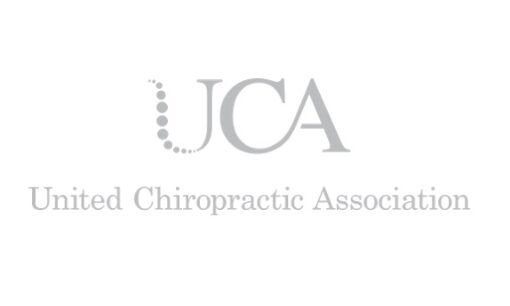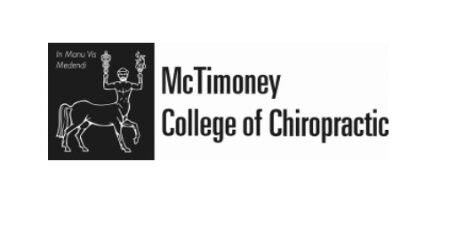Benefits of Postnatal Pilates
After I had my daughter 4 years ago, the impact of pregnancy and childbirth affected me both physically and mentally. I felt weak and was really struggling. I had done lots of pilates in the past (including starting my APPI teacher training) but felt I would benefit from some physio-led classes to specifically work on my post-natal recovery. Eight weeks post-birth I joined a class and never looked back! It was amazing and gave me the chance to focus on pelvic floor strengthening, rebuilding my core and helping me adapt to my changing body, after having my daughter.
There are so many benefits to starting pilates after the birth of your baby! It’s a great way to help ease you back into exercise, target weakened abdominal muscles and mobilise the spine. Which will help to improve your posture and reduce the risk of back and neck pain!
What are the benefits of Postnatal Pilates?
Pelvic floor strengthening
The pelvic floor muscles are found at the base of your pelvis (between the tail-bone and the pubic bone) and support the bladder and bowel, as well as the uterus and vagina. The pelvic floor weakens during pregnancy and birth, due to hormonal changes and the weight of the baby. A weakened pelvic floor can sometimes lead to symptoms of urinary incontinence or prolapse. Postnatal Pilates helps to strengthen the pelvic floor by teaching you to reconnect and engage those muscles, improve your core strength and stability.
Improve posture
During pregnancy, our centre of gravity is constantly changing. This therefore affects our posture. Did you know that this change in posture can also remain after giving birth due to breastfeeding positions and lifting/carrying our babies?! Postnatal pilates can help, and benefit, your posture. Mobilising the spine during the exercises, and helping to strengthen the deep postural muscles in order to support the spine, releases tensions and tightness.
Prevent back pain
Lots of women experience back pain during and after their pregnancy. This is often due to the increased strain on the muscles and ligaments of the back and pelvis. Postnatal pilates helps to re-distribute the forces placed on the spine by strengthening and increasing the mobility of the hips and stability of the pelvis. This helps to ensure you are not overloading your spine when you walk, lift, sit or stand. Pilates also targets the small spinal muscles, which may have weakened, contributing to the back pain.
Strengthen core muscles and improve Diastasis Recti
During and after pregnancy, our core muscles weaken and become stretched. Postnatal pilates helps to build the deeper core muscles, as well as those around the front, sides and back of the abdominals.
Some women may experience some residual abdominal separation post-natally. This is known as Diastasis Recti. It is normal to experience some separation during pregnancy, as this allows the abdominals to stretch in order for our womb to grow. For most women this will return to normal after birth, however for some women this will take longer and may need more specific rehabilitation. Once assessed, Postnatal pilates can help to restore the tension across the abdominals and Linea Alba (the band of connective tissues between the abdominal muscles). Which eventually will then reduce the separation and strengthen those muscles.
Restoring confidence and wellbeing
During pregnancy and child-birth your body goes through significant changes. This can often be hard to adapt too, both physically and mentally. Pilates is exercise for both the mind and body! It helps you make time to focus on reconnecting with your body in a supportive environment.
Postnatal Pilates is low impact so it is a brilliant way to return to exercising after giving birth. It aims to strengthen your deep core muscles, improve posture, engage your pelvic floor and help your reconnect with your body.
If you would like to find out more about our Postnatal Pilates classes, please contact the clinic for further information. Babies are even welcome – so that means no more childcare scrambling is necessary! We’d love to see you and your little one there!
